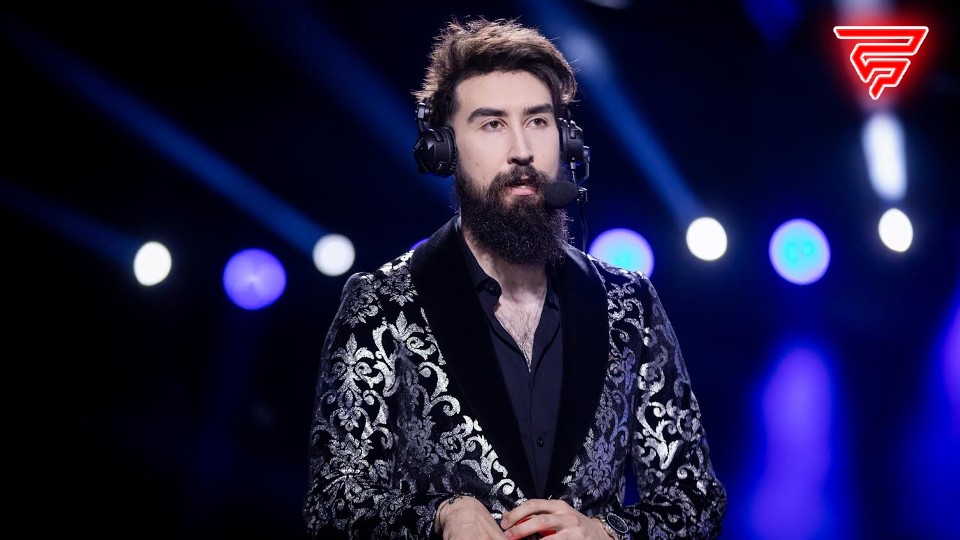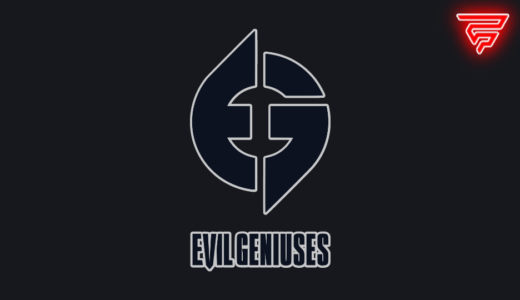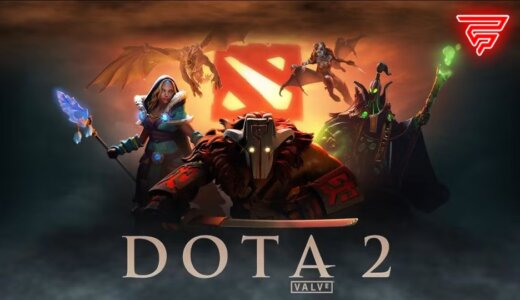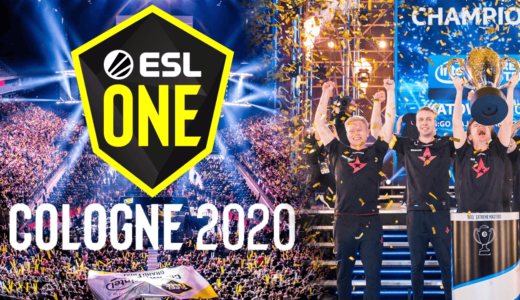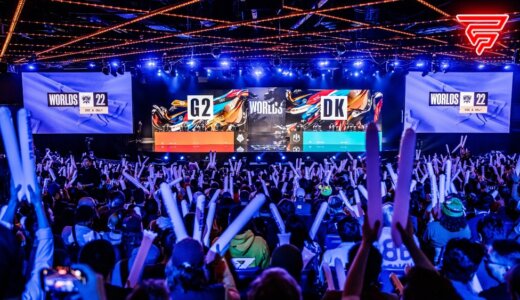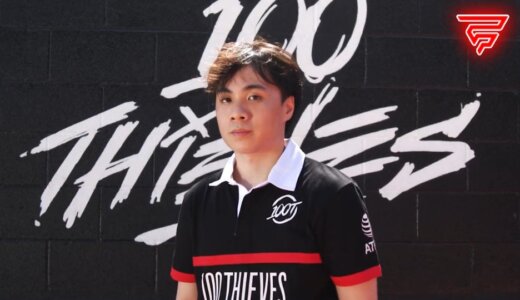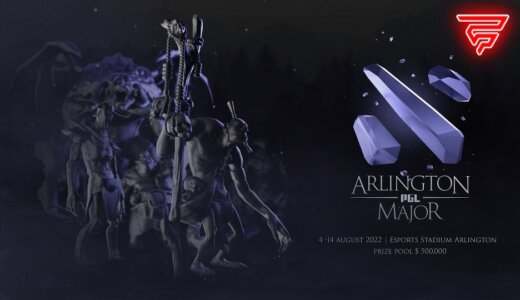While the majority of esports revolves around teams and players, the experience from live esports broadcasts could simply never be the same without talented people that guide us through the thrilling but complex ride that an esports match can be. While we only see the glam, they are the ones who make sure to bring the excitement straight to our homes.
But what’s it like to work behind the scenes of the biggest esports broadcasts? According to esports Caster and Host Jacky Peters, it’s not as stressful as you might think, as the enjoyment of the job takes over pretty quickly.
Host with outfits brighter than my future
If you follow CS:GO, Halo, R6, World of Warcraft, Payday or Quake, you couldn’t have missed him. His brightly colored signature outfits and magnificent beard are hard to overlook, and the same can be said about his talent, which brought him the UK Commentator of the Year 2020 award.
Having worked with some of the biggest tournament operators including ESL, PGL, FACEIT, and RedBull, Jacky has years of experience not only with hosting and commentating esports and gaming events but also with the management and production of live broadcasts.
In an exclusive interview with Fragster, Jacky revealed the process behind creating a live esports broadcast, what’s important to keep everything as smooth as possible, whether everything has to be perfect on the first go, and also what was the most hectic moment he experienced during a broadcast.
Fragster: So Jacky, you’ve been an esports host and commentator across various titles for many years now. Along the way, which project did you enjoy working on the most and why?
Jacky Peters: Working the PGL RMR’s on the run-up to the Antwerp Major was a time I really cherished as I got to cast two weeks of amazing top-tier CS alongside my duo partner in Davey. It was exciting for us because we cast together online throughout the online COVID era and had to wait for the return of in-person LANs to get our debut as a duo in real life. It was super cool to finally have that moment.
However, the event that really takes the cake for me has to be the Red Bull: Race to World First. Working that event was wild two weeks of nonstop broadcasts from the Redbull gaming sphere, having effectively a podcast filled with challenges and random hilarious moments every night, and working the graveyard shift alongside Snodz, Gelu, and AutomaticJak. It was an absolute riot, you hardly noticed you were on camera talking for 10+ hours a shift haha. We all enjoyed that event so much that we were bringing it back soon as a podcast.
Since there’s no need to be introducing yourself and your work, can you tell us something interesting about yourself that maybe not many people know?
Some people may know that I live and commentate out of a shed in my back garden, a fact that massively blew up in popularity due to Richard Lewis’s No Majors Club, where people dubbed me the shedman, and I now have a lovely community of shediots on my twitch channel and interact with them daily there. (twitch.tv/Jackyesports)
HERE WE GO, BACK ON THE MIC WITH @DAVEYCSGO FOR THE FIRST TIME THIS YEAR 🔥🔥🔥🔥🔥https://t.co/Ih3Hzj47R7https://t.co/Ih3Hzj47R7https://t.co/Ih3Hzj47R7#BLASTPremier pic.twitter.com/ZidUFRiGu5
— Jacky (@Jackyesports) March 10, 2022
Behind the scenes
A part of what you do is also the management of live broadcasts. Can you portray for our readers how esports broadcasts are created behind the scenes? What’s the process and what needs to be taken care of?
I’ve always been involved in esports in a variety of different roles, from getting my start as a player to moving to an admin position, becoming on-camera talent, and dabbling in both, production and observing behind the scenes. Being a part of some of the biggest events in the world of esports gave me a major appreciation for everything that goes on behind the scenes, not just on camera.
There’s so many people’s blood, sweat, and tears that go into bringing an esports live event from an idea to a broadcast you can enjoy as a viewer. Everything you see on screen had tens of people’s creative vision and work put into it, with a background staff ranging from the smallest details right up to the role of being in charge of production as the show caller and having to make tough calls during the violate landscape of an esports broadcast.
Esports events can be a logistical nightmare, from getting the hardware needed on site, to setting up the infrastructure at a venue to even broadcasting. It’s always a new challenge and always rewarding when you see the broadcast finally sent live and people are enjoying it.
In your LinkedIn profile, you say you focus on the effective management of esports broadcasts. Can you reveal some of the ways how to make management effective? Especially during live broadcasts, by the nature of it, it can undoubtedly get hectic sometimes, so what’s most important to keep everything as smooth as possible and running?
Remaining cool under pressure is the most accurate and simple way to give you an idea of effective management. What you do in those high-pressure moments, and being able to just stay cool. There’s always a solution, always a workaround, and always a lesson to be learned to avoid future panic or chaos.
In the nature of esports events; things will go wrong, and it’s up to you to keep a level head. Do not panic and begin working towards a solution as quickly and as calmly as possible.
Another day, another best of three is about to go down at the EU RMR 🔥
Rockin’ it with @daveycsgo
🌸 twitch PGL_CSGO 🌸 pic.twitter.com/YzoWxpw3I6
— Jacky (@Jackyesports) April 19, 2022
How does the production team deal with issues and mistakes during a live broadcast? Is there any space for mistakes at all, or does it all have to be perfect on the first go?
As a rule of thumb, I think most production teams will focus on the games and broadcast being live and running as the number one goal. As long as the games are being played and viewers can see and hear everything that’s happening, then the most important part of the broadcast is working. The longer the event goes on the more you can refine and fix the broadcast to offer more features, more cinematics, and more shoulder content, but just having a starting point with a goal to work towards a strong finish is the way to go.
Can you recall the most hectic moment you experienced during a broadcast? And how did you save the situation?
Oh, there’s been a lot of those moments! One that stands out for me was my first-time stage hosting at ESL UK back in 2018. We’d just come back from a break after the winning team had been crowned and I was sent out to award them with a cheque and interview them and finally close out the show.
All ways going well until I realized my battery pack that provided the audio from my producer calling the show had become unplugged due to being pulled when I went onstage. At that moment, knowing I was on my own, I just went with my own gut about when to close the interview and when to call for the cheque to be brought out, and finally, when to close and wrap the show. My producer had no idea I had even lost the audio and was blown away by how I handled it, thinking I could hear him calling the show the whole time.
And how are you personally dealing with the stressfulness of this kind of job?
It’s not as stressful as you might think. Being stressed and nervous are things I feel you grow out of in esports very quickly, as the enjoyment of the job you do really does take over and holds strong even throughout the years. Sure, there are moments of pressure, but the relief from nailing a broadcast or game-ending call as a commentator will always make up for that in droves.
Just be nice
In your opinion, what makes a good esports broadcast and what makes a good esports host?
For me, it’s the right combination of talented people all working together to produce something special. The passion and synergy of the production and talent team is something that’s hard to realize if you’re only seeing the broadcast at face value, but if you work behind the scenes, you know how much clicking with your production teams, or having that mutual collaboration on broadcast decisions, can push a good event to a great one.
You’re an award-winning esports talent. What tips would you have for young hosts or casters looking to become professionals?
The biggest piece of advice I can give, and something I’ve lived by in esports and real life that’s helped me get to where I am today is, just be nice.
Be genuine and show interest. It’s not weird or cringey to be passionate and when it shows, people are more willing to help you and push you further. Support other casters, don’t feel threatened by them. We all grow at our own pace, and progress in esports is anything but linear, so be nice to everyone. Say hello to everyone, don’t feel like you don’t have to know the production team or that you’re better than someone. Just be nice and you’ll find those people will help you and you’ll be recommended further, as word travels fast in esports. Be nice to everyone and you’ll all succeed together.
Another throwback for the ages, on the mic with @SnodzCSGO again today 🔥
Covering more @BLASTPremier qualifier action!
Picture circa 2017 📸 pic.twitter.com/7RTxC5N2Id
— Jacky (@Jackyesports) August 13, 2022
Last question, CS:GO fans recently celebrated the 10th anniversary of the game in their hearts. You’ve been active in the scene pretty much since its begging. What’s your greatest moment over such a long period of time? What’s the first thing that comes to mind when you talk about CS:GO?
The greatest moment is just having the blessing to still be talking about a game that I dedicated my life to so many years ago, and that I’m still finding myself traveling the world and getting more life experience all because of the greatest FPS of all time.
I’m just thankful to have everything Counter-Strike’s ever given me, and I’m more passionate than ever to commentate on the game that gave me a career as a talent. My passion for the craft and the rush of dropping the smoothest sickest bars to compliment a play of an insane nature will always be my favorite thing in life.
Header: ESL
